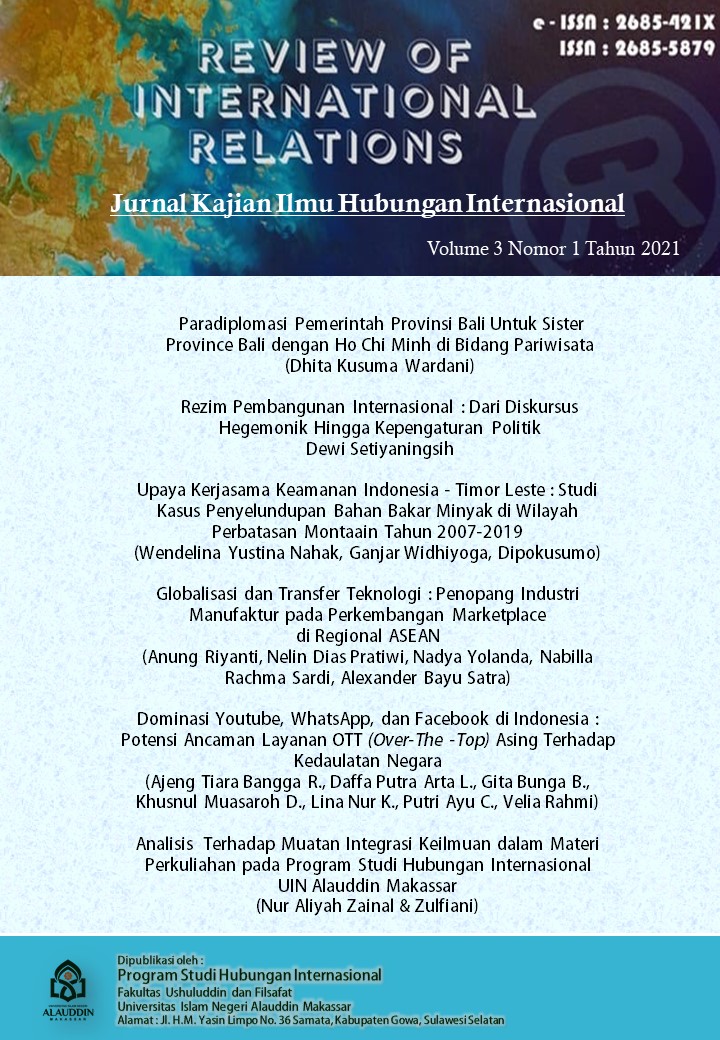DOMINASI YOU TUBE, WHATSAPP, DAN FACEBOOK DI INDONESIA: POTENSI ANCAMAN LAYANAN OTT (OVER-THE-TOP) ASING TERHADAP KEDAULATAN NEGARA
Abstract
The presence of OTT services (Over-The-Top) inIndonesia, especially in three major platforms, Youtube, WhatsApp, and Facebook has influenced the phenomenon of globalization. The ease of features offered by each platform began to raise security concerns regarding the use of OTT services. Various cases that arise certainly can not be underestimated, because it is a form of violations committed by foreign OTT against the structure of state authority . With the existence of these three dominating applications in Indonesia, of course, more supervision is required from the state authorities. In this study, the authors will attempt to explain why the existence of foreign OTT in this era of globalization can have potential in threatening Indonesia's sovereignty? This issue will be explained through two from the four concepts of sovereignty described by S.D Krasner, including the concepts of Interdependence Sovereignty and Domestic Sovereignty. This study uses a qualitative approach with the method of analysis of literature studies. The results of this study show that OTT has the potential to threaten Indonesia's sovereignty and raise new problems because there is no specific regulation governing OTT, so that OTT dominated by global actors can continue to run their cross-border business without being burdened with legal obligations. In addition, the state can be said to have failed in controlling and applying its authority in implementing regulations on the movement of foreign OTT within the territorial boundaries of its own country.
Keywords: OTT, Sovereignty, Regulation, Threats
Downloads
Copyright (c) 2021 Review of International Relations

This work is licensed under a Creative Commons Attribution-ShareAlike 4.0 International License.










